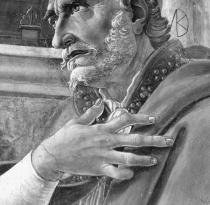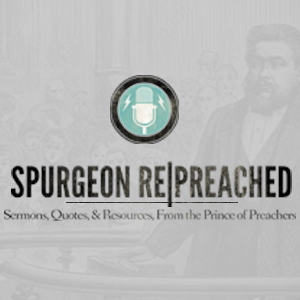
1703-1758. Reformed Preacher and Theologian in New England.
Having thus shown wherein there is an admirable conjunction of excellencies in Jesus Christ, I now proceed,
Secondly, To show how this admirable conjunction of excellencies appears in Christ’s acts.
1. It appears in what Christ did in taking on him our nature. In this act, his infinite condescension wonderfully appeared, that he who was God should become man; that the word should be made flesh, and should take on him a nature infinitely below his original nature! And it appears yet more remarkably in the low circumstances of his incarnation: he was conceived in the womb of a poor young woman, whose poverty appeared in this, when she came to offer sacrifices of her purification, she brought what was allowed of in the law only in case of poverty; as Luke 2:24. “According to what is said in the law of the Lord, a pair of turtle-doves, or two young pigeons.” This was allowed only in case the person was so poor that she was not able to offer a lamb. Lev. 12:8.
And though his infinite condescension thus appeared in the manner of his incarnation, yet his divine dignity also appeared in it; for though he was conceived in the womb of a poor virgin, yet he was conceived there by the power of the Holy Ghost. And his divine dignity also appeared in the holiness of his conception and birth. Though he was conceived in the womb of one of the corrupt race of mankind, yet he was conceived and born without sin; as the angel said to the blessed Virgin, Luke 1:35. “The Holy Ghost shall come upon thee, and the power of the Highest shall overshadow thee; therefore also that holy thing which shall be born of thee, shall be called the Son of God.”
His infinite condescension marvellously appeared in the manner of his birth. He was brought forth in a stable, because there was no room for them in the inn. The inn was taken up by others, that were looked upon as persons of greater account. The blessed Virgin, being poor and despised, was turned or shut out. Though she was in such necessitous circumstances, yet those that counted themselves her betters would not give place to her; and therefore, in the time of her travail, she was forced to betake herself to a stable; and when the child was born, it was wrapped in swaddling-clothes, and laid in a manger. There Christ lay a little infant; and there he eminently appeared as a lamb. But yet this feeble infant, born thus in a stable, and laid in a manger, was born to conquer and triumph over Satan, that roaring lion. He came to subdue the mighty powers of darkness, and make a show of them openly; and so to restore peace on earth, and to manifest God’s good-will towards men, and to bring glory to God in the highest; according as the end of his birth was declared by the joyful songs of the glorious hosts of angels appearing to the shepherds at the same time that the infant lay in the manger; whereby his divine dignity was manifested.
~Jonathan Edwards~
The Works of Jonathan Edwards Vol. 1 (Bellingham, WA: Logos Bible Software, 2008), 683. The Excellency of Christ
Books by Jonathan Edwards
Biography of Jonathan Edwards
Online Books Available
Other Edwards Quotes
Tags: Jonathan Edwards, The Works of Jonathan Edwards













John Calvin – Receive The Word With Meekness
11 Apr21 Therefore put away all filthiness and rampant wickedness and receive with meekness the implanted word, which is able to save your souls. – James 1:21
He concludes by saying how the word of life is to be received. And first, indeed, he intimates that it cannot be rightly received except it be implanted, or strike roots in us. For the expression, to receive the implanted word, ought to be thus explained, “to receive it, that it may be really implanted.” For he alludes to seed often sown on arid ground, and not received into the moist bosom of the earth; or to plants, which being cast on the ground, or laid on dead wood, soon wither. He then requires that it should be a living implanting, by which the word becomes as it were united with our heart.
He at the same time shews the way and manner of this reception, even with meekness. By this word he means humility and the readiness of a mind disposed to learn, such as Isaiah describes when he says, “On whom does my Spirit rest, except on the humble and meek?” (Isa. 57:15.) Hence it is, that so few profit in the school of God, because hardly one in a hundred renounces the stubbornness of his own spirit, and gently submits to God; but almost all are conceited and refractory. But if we desire to be the living plantation of God, we must subdue our proud hearts and be humble, and labour to become like lambs, so as to suffer ourselves to be ruled and guided by our Shepherd.
~John Calvin~
Commentaries on the Catholic Epistles – James (Bellingham, WA: Logos Bible Software, 2010), 294–295.
Books by John Calvin
Biography of John Calvin
Calvin’s Works on Logos Bible Software
Kindle Books
Online Books Available
Other Calvin Quotes
Tags: Calvin's Commentaries, John Calvin